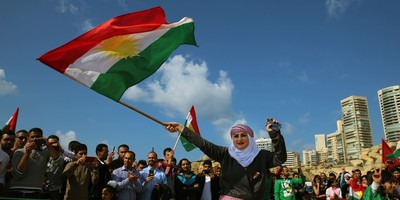Will President Obama show courage and save Iranians who seek a soft revolution in Iran?
With the commemoration of the fiftieth anniversary of JFK’s assassination on November 22, words from Profiles in Courage, cross paths with past, current, and future upheavals. They include a soft revolution in America, Arab revolts in Tunisia and Egypt, and a prospective revolution in Iran.
Iranian dissidents held in prison-like conditions in Iraq are the true profiles in courage. Just like few dreamed that freedom riders and sit-in demonstrators would ignite the civil rights movement, it seems inconceivable that suffering of a few might ignite a chain of events that brings down leaders of the Iranian regime—Ayatollah Ali Khamenei and his satrap in Iraq—Prime Minister Nouri al Maliki.
Despite strong reservations of Dr. Martin Luther King, freedom riders and sit-in protestors risked their safety and created a soft revolution, first in the deep south and then throughout America. Iranians jeopardizing their lives in Camp Liberty, Iraq, do so despite advice of the leadership of the National Council of Resistance of Iran (NCRI) and former American military advisors who now stand on the side of the Iranian dissenters in Camp Liberty. While few take notice, hunger strikers are laying down a moral marker for the rest of us.
It may appear as if the leadership of the NCRI is using hunger strikes as a strategic tool to wrest concessions from the United States; but my interviews with Iranians engaged in hunger strikes in Geneva indicate they are on their own, and the NCRI strongly discourages them from taking these actions.
On the date commemorating the JFK assassination, November 22, hunger strikers will enter their eightieth day going without food so their brothers and sisters can be resettled safely outside of Iraq. Although most of the strikers are dying in silence, one poet sings a song that reminds me of JFK’s statement, “The rights of every man are diminished when the rights of one man are threatened,” which is reminiscent of Dr. King’s declaration in his letter from a Birmingham jail during JFK’s presidency that, “Injustice anywhere is a threat to justice everywhere.”
Recommended
That “one man” treated “unjustly” is Mohammad, a popular singer of the Iranian resistance, who sings his way to an honorable death. He endangers his own life to call on President Obama to break his silence and act to save the lives of 3,000 other Iranian dissidents in Camp Liberty. As the hunger strikes enter their twelfth week, there is an extraordinary rise in fear of the other residents of Camp Liberty, surviving families, and the Iranian community.
Besides President Obama, another target of Mohammad’s is the U.S. Senate Foreign Relations Committee. It has the power to deny the sale of American-built Apache helicopters for Iraq to use in counterterrorist operations against al Qaeda, which Iraqi Prime Minister Nouri al-Maliki so dearly desires. But Nouri did not count on the moral power of Mohammad, the hunger striker.
Regarding the civil rights movement, consider that during the same week of the 50th year of JFK’s death comes the 150th year anniversary of Abraham Lincoln’s Gettysburg Address of November 19, 1863. Lincoln planned simply to mark a burial site for those who gave their lives in the Battle of Gettysburg of July 1863. He then reasoned that the dedication of the Battlefield could also be an occasion to persuade the Northern public that the war was fought not simply to save the Union but also on behalf of freedom. And the South did not count on the moral power Lincoln showed combining preservation of the Union with freedom for the slaves.
So the revolution anticipated by JFK in Profiles of Courage presaged the soft revolution by black and white freedom riders and sit-in protestors. Both stood on the shoulders of Lincoln of Illinois. Will Obama of Illinois stand on the side of liberty? Just as Lincoln backed emancipation for the slaves, Obama can back freedom for the Iranian dissidents.
Now is the time for President Obama to be courageous and back those whom we promised to protect who are now trapped in Iraq.

























Join the conversation as a VIP Member